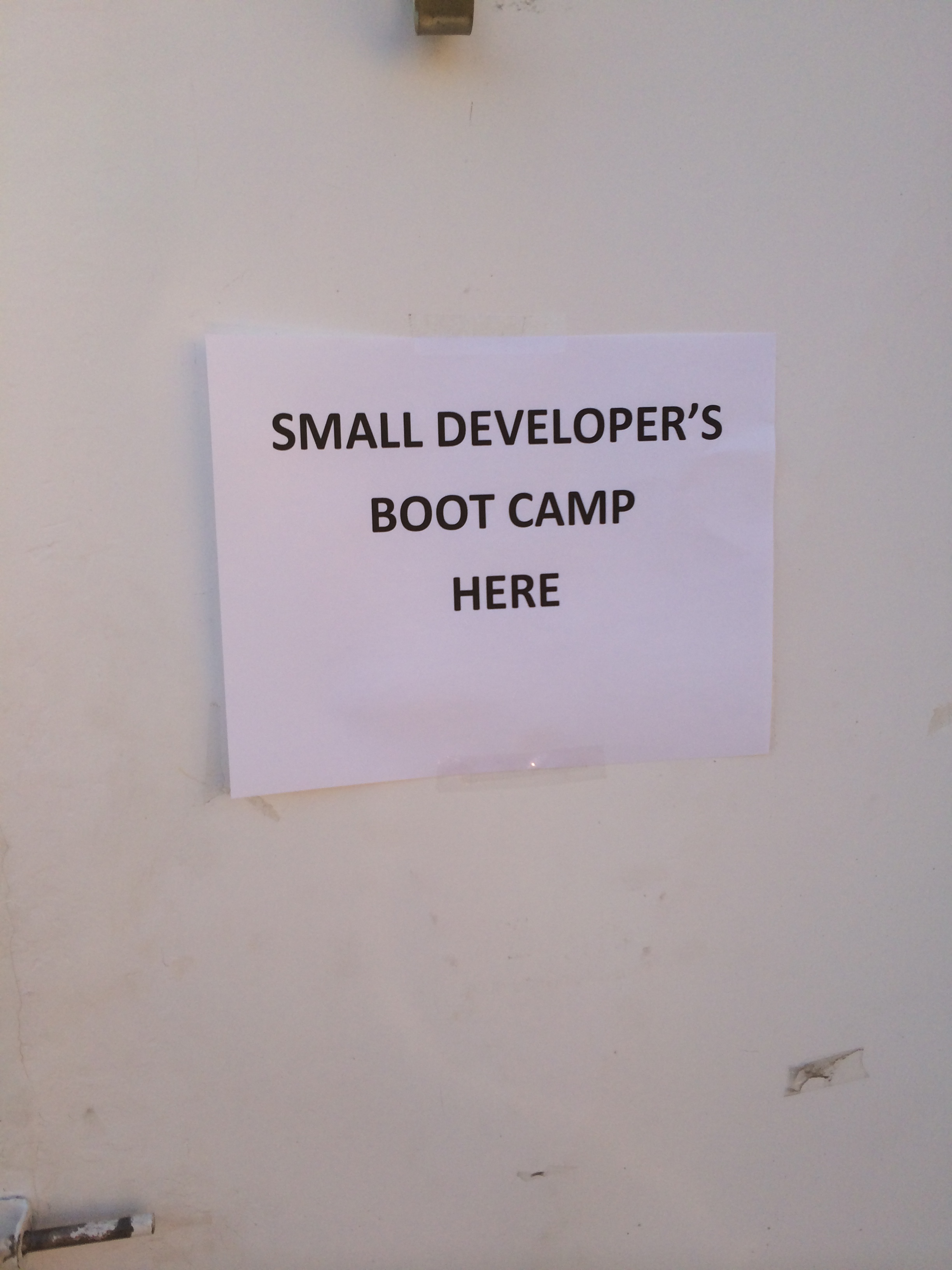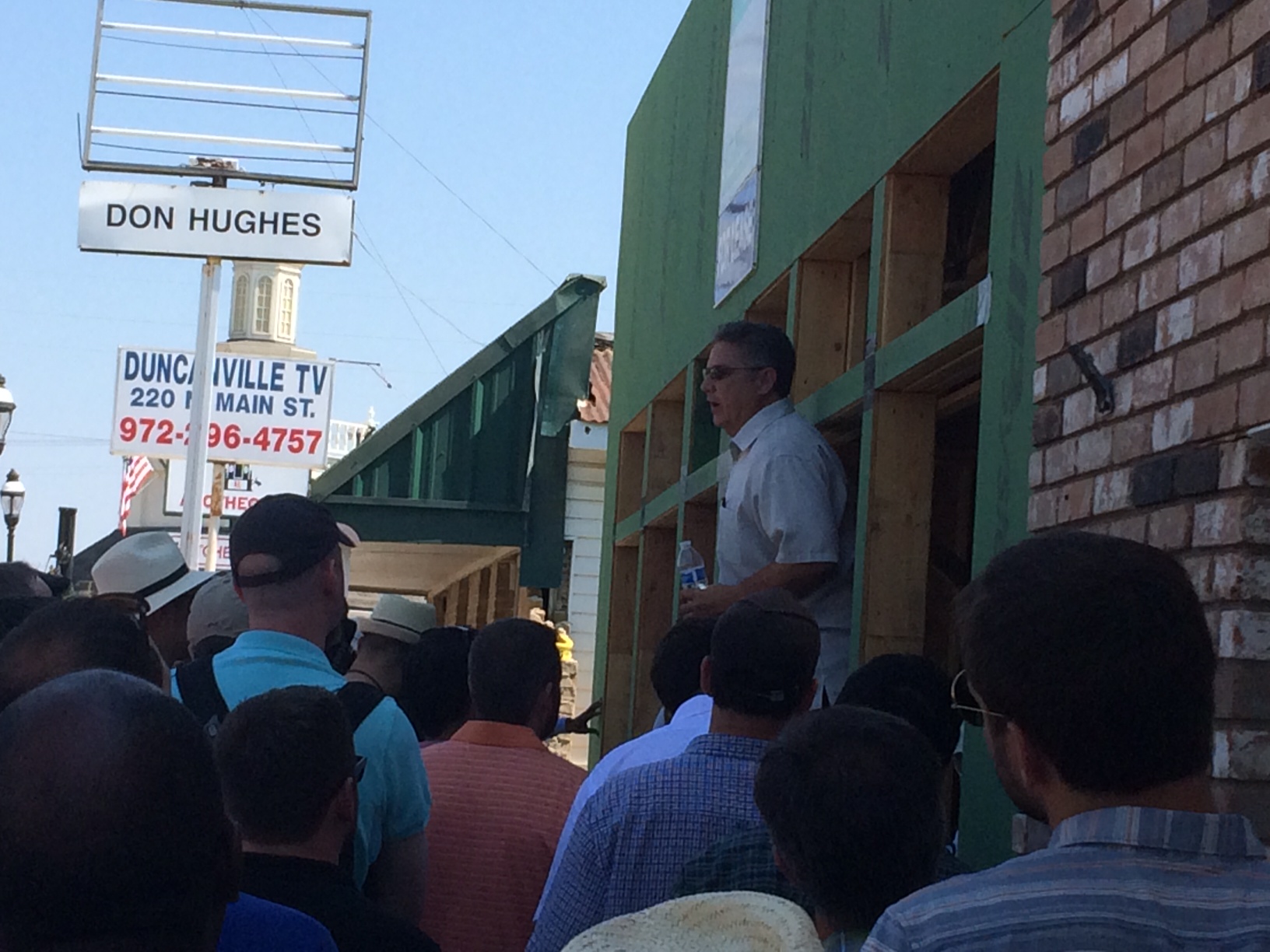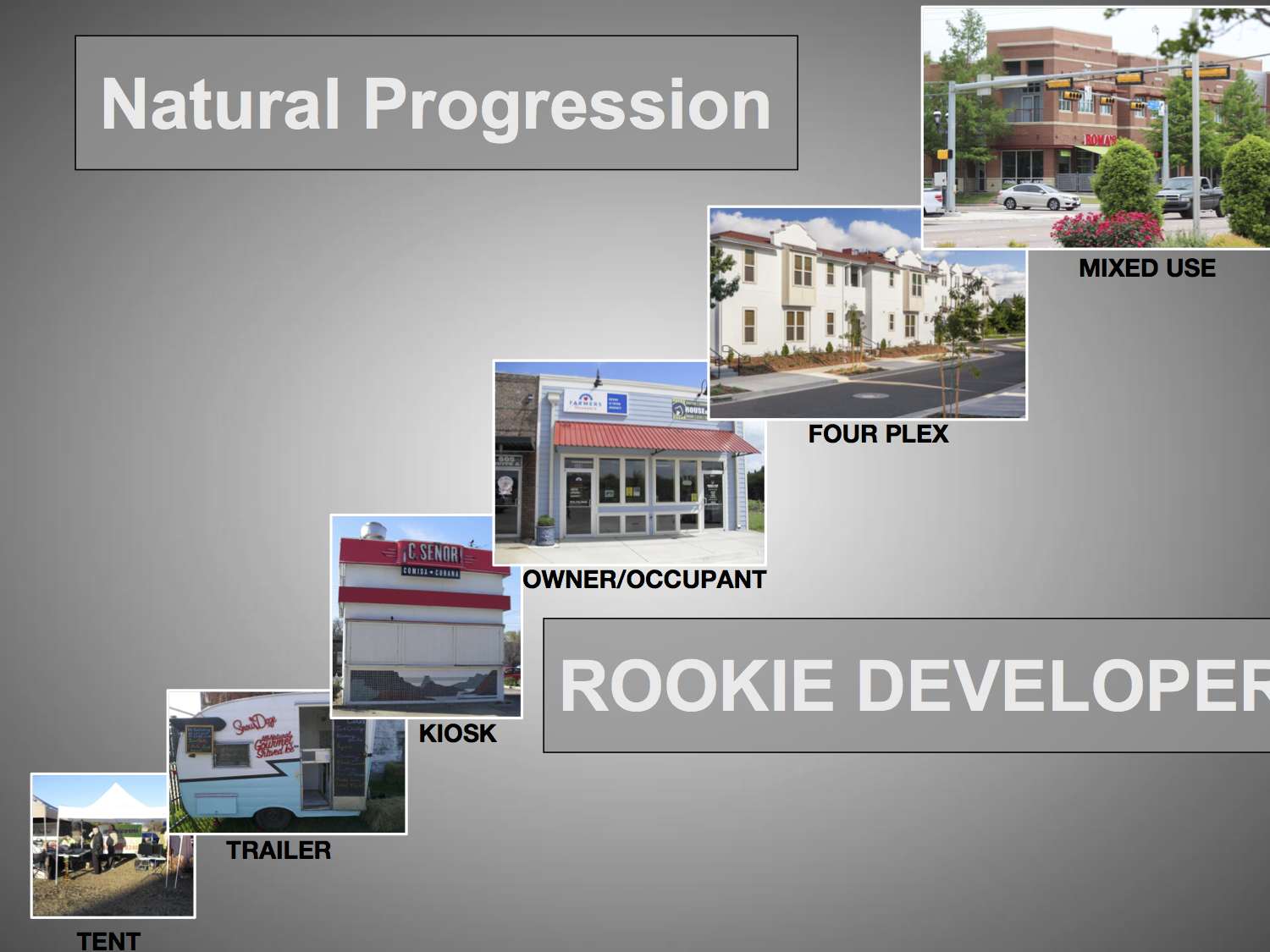
Friday Evening
6:30 Registration
7:00 Barbecue Beer & Wine at the Venue
8:00 Boot Camp Kick Off ; Monte Anderson & John Anderson
Monte and John will lay out what to expect from the Boot Camp and how to get the most out of the Duncan Switch Street Market first thing Saturday Morning.
8:30 Pech Kucha; 5 minute presentations of Projects and Problems (20 slide limit)
Bring your PowerPoint and present your project (regardless of how far along you are in getting it figured out, funded, or built).
1 Required Slide:
- What you have learned from your project so far?
- What you need to figure out?
- Where you need help?
Contact Jim Kumon jimkumon@gmail.com get on the list of folks presenting at the Pecha Kucha.
Saturday
6:00 AM Breakfast available at the Venue.
6:30 Street Market 101 - Monte Anderson.
Monte Anderson will lead the tour as the Duncan Switch Street Market sets up on Main Street. Straggles can join the tour in progress, but are likely to miss some excellent content.
8:00 Small Developer Basics - John Anderson.
The mechanics of Land Development, and building for sale and for rent -both the conventions followed by large operators and alternative strategies for Small Developer/Builders.
Small Developer Basics are broken down into Market Research, Proof of Concept and Site Selection, Programing and the Pro Forma, Financing, Design & Construction Delivery, Sales/Leasing & Property Management.
10:00 Practical Realities for the Small Developer - Monte Anderson.
Monte will address questions like how do I get started as a developer? How do I transition to development from a related field? How do I select an area as my "farm"? What is a good business model for the small developer?
11:00 Walking Tour of Downtown Duncanville.
Duncanville may not be Paris or Uptown, but recent rehab and infill projects in downtown Duncanville are great examples of how to make a difference in a neighborhood or small town incrementally, so that the parts can add up to a good and valuable place.
12:00 Lunch at the Venue.
12:30 Straightforward Design for Small Development Projects - David Kim
David will demonstrate the value of using stable building types and everyday building materials and practices. He will demonstrate the wide range of buildings are available to the small developer below the threshold of larger scale buildings that require structured parking or elevators.
1:30 Cottage Courts - Bruce Tolar
Bruce will show models of for sale and rental cottage court residential and mixed use projects and demonstrate how cottage courts can be used to solve difficult site configurations.
2:00 Managing Construction - John Anderson & Bruce Tolar
A primer on the various systems of delivering site improvements and buildings; Using a General Contractor, Hard Bid vs. Negotiated Contracts, Design Build Variants, Construction Management Structures, Working directly with trade contractors, and the pros and cons of each for small developers with a range of skill sets.
3:30 The Glamour of Site Improvements and Utilities - John Anderson
How to sort through the details that your Civil Engineer or local utility company may have screwed up; Rule of thumb for placing transformers, meters, trash enclosures and other stuff that didn't get much attention until it showed up in exactly the wrong place.
4:00 Break
4:20 Pro Formas, Budgets, and Deal Structures - John Anderson & Monte Anderson
How does the Pro Forma evolve through the arc of the project and how can a small developer assemble credible and reliable cost estimates?
6:30 Dinner
7:15 Asking for Money - John Anderson & Monte Anderson
Banks and Equity Investors have very different goals and perspectives when it comes to considering the small developer's projects. Monte and John will walk you through how lenders and investors look at a deal and how to prepare your pitch and the supporting materials.
8:15 Deal Pitch Simulation
Instructors will demonstrate how to pitch a project to a Lender and to a Capital Partner (investor or land owner). Attendees are encouraged to pitch their projects to the "bankers" and the "investors". This simulation is intended to provide attendees with an opportunity to practice and refine their pitch in a supportive environment.
Sunday
8:00 Breakfast
8:30 Constraints, Opportunities and Competitive Advantage for Small Developers
Things municipalities can do to encourage small developments grouped into three categories: Essential, Important, and Useful. 9:30 Lab Work and Extended Q& A
Attendees can present their projects for detailed critique by the Instructors and the other attendees. Bring your project in PowerPoint on a flash drive. Spreadsheet pro forma files are also helpful. Contact Jim Kumon to reserve a slot for your project's critique and discussion.
A scanner/printer will be available in the venue throughout the boot camp to print 11 x 17 materials. Attendees can post their projects in the classroom space. Don't be shy.
12:00 Lunch on your own.
 The first Boot Camp is behind us. 100+ people came to learn about how to develop scale projects. Everyone I spoke with was already pretty accomplished in some line of work, but looking at what it would take to move into development. This crew is going to be able to offer each other a lot of help and support. After a pretty grueling 14 hour day of instruction and discussion, people still had enough energy to hang out at the Pop-Up Art Gallery put together by Donna Harris and her crew for another 3 hours.
The first Boot Camp is behind us. 100+ people came to learn about how to develop scale projects. Everyone I spoke with was already pretty accomplished in some line of work, but looking at what it would take to move into development. This crew is going to be able to offer each other a lot of help and support. After a pretty grueling 14 hour day of instruction and discussion, people still had enough energy to hang out at the Pop-Up Art Gallery put together by Donna Harris and her crew for another 3 hours.


